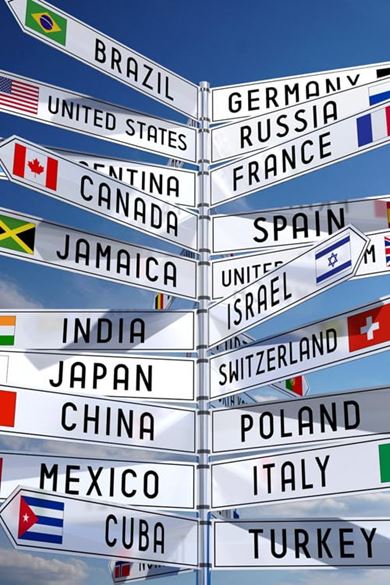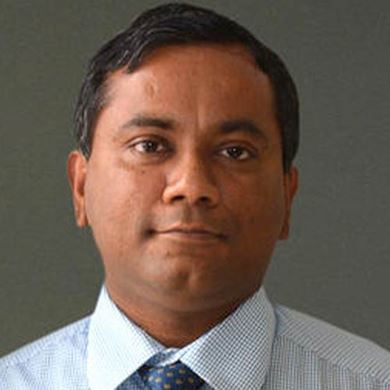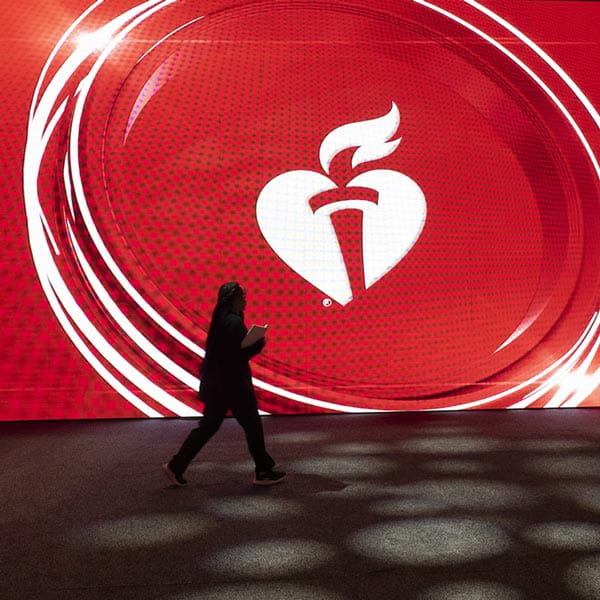International Stroke Conference 2026
Sessions: February 4–6, 2026
Ernest N. Morial Convention Center | New Orleans, Louisiana

Submit your sessions ideas for ISC27!
Tell us what education you want to see at the International Stroke Conference (ISC) 2027 and the State-of-the-Science Stroke Nursing Symposium 2027! We invite you to submit your exciting and novel session ideas for debate topics, session topics and speakers. This is your opportunity to have your suggestions considered for the next ISC!

2026 Important Links
Programming
- #ISC26 Abstracts in Stroke – Science abstracts (except Late-Breaking Science)
- Articles published Simultaneously in AHA Journals
- 2026 Online Program Planner site – Abstracts, schedules, and more
- Late-Breaking Science – Top trial results
- Virtual Programming – Watch or rewatch sessions
- CE Credit – Instructions on how to claim credit
- ISC 2026 ePosters (sign in with conference badge number) and historical ISC ePosters
While On-Site
- For Presenters & Moderators – details and how-to instructions
- Mobile Meeting Guide App ‐ #ISC26 on your phone
- American Heart Association Newsroom – news releases
- #ISC26 Science News – in-depth interviews with presenting investigators, data slides
- ISC Conference Coverage
- ISC Daily News (newspaper)
In-Person Attendees Get:
- All general sessions Wednesday through Friday.
- Two days of Science & Technology Hall access.
- Two days of Poster Hall access.
- Access to all ePosters online.
- Two days of access to the expanded Simulation Zone.
- Two days of access to the Neuro Talk Theater.
- Virtual access to any Pre-Conference Symposia you register for.
- Virtual access to three live streaming session rooms. Virtual access to all concurrent sessions on demand within 24 hours after taking place in person.
Virtual Attendees Get:
- Late-Breaking Science Sessions.
- All Main Events.
- The New 2025 Guidelines for Acute Ischemic Stroke.
- Virtual access to three live streaming session rooms. Virtual access to all concurrent sessions on demand within 24 hours after taking place in person.
- Access to all ePosters online.
Note: You must register for a Pre-Conference Symposium in order to access it via OnDemand™


What's New at #ISC26
Get ready for a reimagined ISC experience, designed to bring you closer to the science, the people, and the global stroke community.
From expanded global collaborations and 22 new abstract categories to a fully revamped Digital Oral Poster experience and community-driven programming, it’s never been easier to connect and engage.
That means more real-time discussion, more personalized learning, and more opportunities for your science to shine.
Science That Shapes the Future of Stroke Care
Where stroke and brain health science meet global collaboration
At the International Stroke Conference, you’ll join a worldwide community of stroke experts, changemakers, and collaborators. With expanded joint sessions from international associations, the 2026 program delivers more global science, more diverse perspectives, and more opportunities to fuel progress together.
This year, you’ll experience new categories, new communities, an expanded Simulation Zone, new Fireside Chat sessions, and five dynamic Digital Oral Poster Theaters designed for real-time engagement. Explore cutting-edge symposia like Stroke in Practice and Experimental Stroke Science, plus an all-new Brain Health Symposium spotlighting the latest advances in brain health science.
#ISC26 brings together the full spectrum of cerebrovascular research—from bench to bedside and beyond. It’s a meeting built for momentum, giving you insights you can apply directly to your work in clinical practice, research, education, and innovation.
 What You'll Gain at #ISC26
What You'll Gain at #ISC26
- Unmatched science: 1,500+ presentations across 22 categories and 15 communities with access extended through Stroke OnDemand™
- Global Connection: Attendees from 50+ countries, building connections that drive global impact
- Practical Insight: Clinical guidance, real-world application, and evidence-based takeaways
- Tools You Can Use: Simulation, AI, and guideline-focused experiences you won't find anywhere else
- Real Community: From the Stroke Council Reception to Fireside Chat sessions to the Neuro Talk Theater to the expanded Simulation Zone, this is where science meets connection

International Attendees
Begin your visa application process as soon as possible. Consulates in some countries can take several months to process applications.
US visa information from State.gov | Find an embassy/consulate in your country
Invitation letters will be available only AFTER your registration has been confirmed. You can submit this letter with your visa application to verify names, dates, location, and purpose of the event. The following documents will be generated through the registration process and be available in the Registration Resource Center:
- Official Letter of Invitation for Meeting Attendees - This letter will be generated only after your registration has been confirmed. You can submit this letter with your visa application to verify the name, dates, location, and purpose of the event.
- Registration Confirmation - Once you have registered for the meeting, you will receive an e-mail confirmation that you can refer to during your visa interview.
International Stroke Conference Leadership

Lauren Sansing, MD, MS, FAHA
ChairInternational Stroke Conference

Bijoy Menon, MBBS, MD, Msc, FRCPC
Vice-ChairInternational Stroke Conference

Stacey E. Rosen, MD, FAHA
PresidentAmerican Heart Association
Key Dates
| Date | Event |
|---|---|
| Feb. 6 to Mar. 16, 2026 | ISC and Nursing Symposium Session Suggestion submitter open |
| Feb. 25 to Aug. 5, 2026 | Feinberg, Kenton, Sacco, Sherman, Willis Award Nominations |
| May 27 to Aug. 18, 2026 | Abstract Submissions OPEN (General, HEADS-UP, Stroke Nursing Symposium, ISC Trainee) |
| Sept. 2 to Sept 23, 2026 | ISC Case Study Submissions |
| Sept. 30 to Oct. 27, 2026 | Late-Breaking Science and Ongoing Clinical Trials abstracts OPEN |
| Feb. 9, 2027 | ISC27 Pre-Conference Symposia and State of the Science Stroke Nursing Symposium |
| Feb. 10 to 12, 2027 | International Stroke Conference 2027 sessions |
AHA Policies and Guiding Values
The American Heart Association policies on conflict of interest, ethics and inclusiveness and our guiding values reflect the high standard of business conduct that has always been, and remains, a hallmark of our organization.

Elevate your expertise at the epicenter of innovation in stroke and brain health:
Step into the world’s premier conference focused exclusively on the science, treatment, and breakthroughs in cerebrovascular disease and brain health. Join a dynamic community of thousands—clinicians, researchers, and innovators—whose diverse expertise fuels cutting-edge collaboration and scientific discovery.
Ignite lifelong connections and dive deep into groundbreaking research presented by global trailblazers in basic, clinical, and translational science. Explore the latest advances shaping the future of stroke prevention, acute care, recovery, and rehabilitation.
From decoding stroke pathophysiology to designing tomorrow’s therapies, this is where your expertise meets its highest potential. Engage in high-impact discussions, contribute to the evolving landscape of brain health, and emerge inspired, informed, and connected. Whether you're pioneering research, delivering frontline care, or reimagining recovery, this conference is your essential forum for discovery, collaboration, and professional growth.
This is more than a conference - it's your opportunity to lead, learn, and leave transformed. Don’t miss the science. Join the movement. Advance the science. Transform stroke care.
Questions?
Registration
Contact: [email protected]
Phone: 1-508-743-8517
Monday through Friday,
9 a.m. to 5 p.m. ET
All Other Questions
If your question is unrelated to registration, membership, or Professional Heart Daily, and is not answered here, please complete this form or call 1-800-AHA-USA-1 (1-800-242-8721).
General Conference Info
General Conference Contact: [email protected]
Phone: 1-888-242-2453 or 214-570-5935
Exhibits
Exhibit at AHA Conferences
Media Inquiries
American Heart Newsroom
Email: [email protected]
Phone: 214-706-1173
Membership
Contact: [email protected]
Phone: 1-888-242-2453 (or outside the US, 1-972-349-5803).
Professional Heart Daily
1-888-242-2453 (outside the US: 1-214-570-5935)
[email protected]
